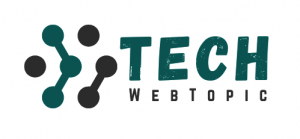Being a company owner means always seeking ways to streamline processes and lighten your workload. You may be perplexed about how some corporations and business owners operate their operations with fewer employees. To save money and have less stress, most businesses employ cloud accounting.
Cloud Accounting
You might be asking, “what is cloud accounting?” It’s nothing new to keep track of the revenue and expenses of your small company to monitor your past financial performance. Finance teams can record and monitor the money coming into and going out of the firm thanks to double-entry bookkeeping, which has been around for centuries, and accounting software,
which has been around for decades.
Traditional Accounting Software
The majority of accounting software was desktop-based before the cloud. In other words, the desktop computer in your workplace has the real program loaded and running from its hard drive. There are a lot of negatives to this, such as restricted access to your data, the need for regular software upgrades, and the continual expense of storing all of this financial data on backup media.
Cloud Accounting Software
The functionality of desktop accounting is preserved in cloud accounting (also known as online accounting), which extends to desktop accounting by moving the whole procedure.
There isn’t a desktop program; instead, you log in to a constantly updated web service, and all of your data is securely kept on a cloud server. A common feature of cloud platforms is an open API, which allows other programs to connect to your system and provide even more value for you as a company owner.
8 Benefits of Cloud Solutions
High Speed
The agility and speed of software development have changed due to the quick creation of new cloud accounting instances. Developers may quickly test new ideas and construct application architecture without being constrained by on-site hardware constraints or lengthy procurement procedures.
Efficiency
Cloud accounting allows users to launch apps fast without worrying about underlying infrastructure expenses or upkeep. Your running costs may be reduced with cloud accounting, enabling businesses to pace their investments to avoid significant upfront capital expenditures and pay monthly as their operations grow.
Data Security
Any successful organization’s data is becoming the focus of hacking efforts, and cloud accounting servers are more popular targets. A security solution that aids in safeguarding sensitive data and commercial transactions have been made available via the cloud. This helps keep the data safe from other parties or transmission violations.
Scalability
Distinct businesses have different IT requirements; a huge company with more than 1000 workers won’t have the same demands as a start-up. The advantage of using the cloud is that it allows businesses to swiftly and effectively scale up or down their IT teams in response to changing business needs.
For companies whose bandwidth requirements are expanding or variable, cloud-based solutions are suitable. You can quickly expand your cloud capacity without investing in physical infrastructure as your company needs to grow.
This scalability reduces the risks related to internal operating and maintenance difficulties. You have all you need with expert solutions, high-performance resources, and no upfront costs. The cloud’s capacity to scale is perhaps its most significant benefit.
Flexibility
Since they may now perform their jobs inside and outside of the office thanks to the flexibility of the cloud, workers’ work in businesses is now more flexible. They may access the web browser from the comfort of their home and get whatever information they want. There are none at all!
Mobility
Reaching more people and spreading information has become simpler, quicker, and even more secure thanks to cloud mobility. It is incredible! As a result, the mobility of the cloud has made it simple for you to communicate, obtain information, and be on the move if you find yourself stuck while trying to finish your assignment.
Easy Manageability
This cloud-based solution was created with service provider management in mind. Therefore, technicians need to do minor maintenance. The service provider agreement guarantees your company reliable and prompt delivery and infrastructure maintenance.
Unlimited Storage Capacity
Due to its scalability, the cloud may store any data in numerous cloud data storage formats based on its availability, performance, and frequency of access. Storage costs increase with data availability, performance, and access frequency. Creating and optimizing the cloud cost structure strategy helps lower cloud storage costs while meeting the company’s cloud data storage objectives.
Conclusion
Cloud accounting is a revolutionary technology that might change the world. It offers individuals and companies several advantages. It minimizes operational costs by spending less on maintenance and software updates and focusing more on the company. Cloud accounting has various obstacles. People doubt data security and privacy. Cloud data is unregulated everywhere. Europe has data protection legislation, but the US, a technology powerhouse, does not. Users worry about data disclosure and ownership. However, global norms and regulations will transform cloud accounting.


